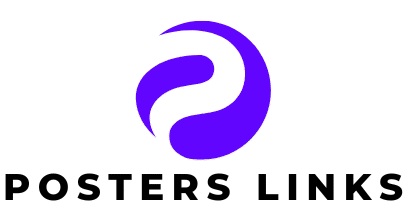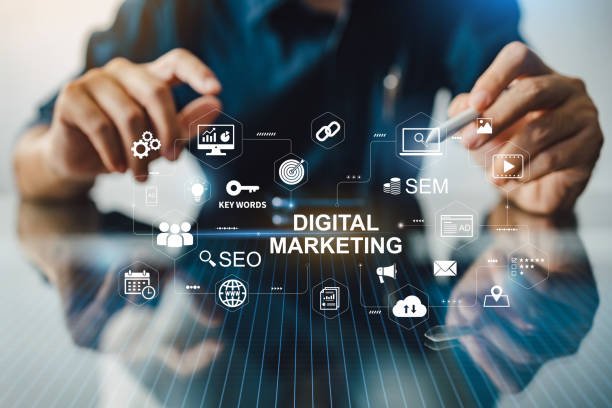In the modern era, digital marketing has revolutionized the way businesses connect with their audiences. With the widespread use of the internet, mobile devices, and social media platforms, traditional marketing methods are no longer sufficient to stay competitive. Digital marketing not only offers unprecedented access to global markets but also provides real-time interaction, measurable performance, and personalized customer experiences. As businesses increasingly shift online, understanding digital marketing has become vital for success.
What is Digital Marketing?
Digital marketing refers to the promotion of products or services using digital channels such as search engines, websites, social media, email, mobile apps, and online advertising. It encompasses various strategies aimed at reaching targeted audiences in a more efficient, cost-effective, and engaging manner.
The primary goal of digital marketing is to attract, engage, and convert potential customers using a mix of content, data, and technology. Unlike traditional marketing, digital platforms allow marketers to track user behavior, campaign performance, and return on investment (ROI) with precision.
Key Components of Digital Marketing
-
Search Engine Optimization (SEO):
SEO involves optimizing website content to rank higher on search engine results pages (SERPs). It includes keyword research, on-page SEO (meta tags, headings, internal links), off-page SEO (backlinks), and technical SEO (site speed, mobile-friendliness). -
Content Marketing:
Content is the heart of digital marketing. Creating valuable, informative, and engaging content—such as blogs, videos, infographics, and ebooks—helps attract and retain customers. Good content improves SEO rankings and establishes brand authority. -
Social Media Marketing:
Social platforms like Facebook, Instagram, LinkedIn, Twitter, and TikTok allow businesses to connect directly with their audience. It’s a space for sharing content, running ads, engaging with customers, and building community. -
Email Marketing:
Despite the rise of social media, email marketing remains one of the most effective tools for nurturing leads and maintaining customer relationships. Personalized emails, newsletters, and promotional offers can drive significant traffic and sales. -
Pay-Per-Click Advertising (PPC):
PPC involves paid advertising through platforms like Google Ads or Meta Ads. Advertisers bid for ad placement in sponsored links. PPC provides instant visibility and is especially effective for time-sensitive campaigns. -
Affiliate and Influencer Marketing:
Affiliate marketing rewards partners for driving traffic or sales, while influencer marketing leverages popular social figures to promote products authentically to a niche audience. -
Analytics and Data-Driven Marketing:
Tools like Google Analytics, SEMrush, and HubSpot provide detailed data about customer behavior, campaign performance, and engagement. This information helps marketers fine-tune their strategies for maximum effectiveness.
Benefits of Digital Marketing
-
Global Reach:
Unlike traditional methods, digital marketing allows businesses to reach global audiences instantly and at a fraction of the cost. -
Cost Efficiency:
Online advertising can be more affordable than TV, radio, or print media. Small businesses can run highly targeted campaigns on a limited budget. -
Measurable Results:
Every aspect of a digital marketing campaign can be tracked—clicks, impressions, conversions, and engagement—allowing for precise ROI calculations. -
Targeted Audience:
Advanced targeting tools let marketers segment audiences by demographics, behavior, location, interests, and more, increasing the chances of conversion. -
Real-Time Engagement:
Through social media and chat tools, businesses can respond to customers instantly, solving problems and building loyalty.
Challenges in Digital Marketing
While the benefits are substantial, digital marketing also comes with its challenges:
-
High Competition:
The online space is crowded. Standing out requires creativity, consistency, and innovation. -
Changing Algorithms:
Search engines and social media platforms frequently update their algorithms, which can affect visibility and performance. -
Data Privacy Concerns:
With increased focus on user privacy (e.g., GDPR, cookie restrictions), marketers must balance personalization with ethical data practices. -
Skill Requirements:
Successful digital marketing demands a combination of technical, analytical, and creative skills. Constant learning and upskilling are essential.
The Future of Digital Marketing
The digital marketing landscape is continuously evolving. Emerging technologies like artificial intelligence (AI), machine learning, voice search, and augmented reality (AR) are shaping how brands interact with consumers.
AI, for instance, is powering chatbots, predictive analytics, and personalized recommendations. Voice assistants like Alexa and Google Assistant are changing SEO strategies, while AR is enhancing product visualization and virtual try-ons in e-commerce.
Moreover, consumers are demanding more authenticity and transparency. As a result, purpose-driven marketing, user-generated content, and brand storytelling are becoming central to digital strategy.
Conclusion
Digital marketing is not just a trend—it’s a necessity in today’s connected world. It offers immense potential for businesses of all sizes to grow, engage, and thrive. By mastering its tools and staying adaptable, marketers can craft meaningful experiences that resonate with audiences and drive lasting results. Whether you’re a small startup or a global corporation, investing in digital marketing is essential for future success.


